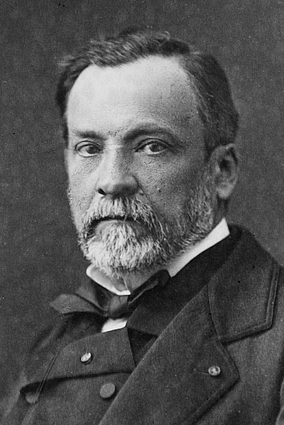 Is this slam at Young Earth Creationists fair?
Is this slam at Young Earth Creationists fair?
Young earth creationists are notorious for two things (among others):
a handful of them have obtained a PhD in a relevant scientific domain, doing research the legitimacy of and basis for which they intend to repudiate as soon as they have the letters after their name, with the sole aim of adding legitimacy to the ideology that they adhered to before ever studying science; and they claim that the overwhelming consensus of those who have PhDs in biology, genetics, paleontology, geology, and other relevant scientific domains is wrong, and that these experts are untrustworthy.
They cannot have it both ways.
No?
I’m definitely not a YEC myself, but Louis Pasteur was trained in a system that accepted, on the authority of countless experts, spontaneous generation. And then, in a famous experiment, in the same year that Darwin’s Origin of Species was published, he destroyed the idea:
This not only settled the philosophical problem of the origin of life at the time but also placed on solid ground the new science of bacteriology, which relied on proven techniques of sterilization and aseptic manipulation.
Guess he shouldn’t have been allowed to do that.
And why do I drink pasteurized milk, not Darwinized milk, to this day? What did Darwin ever do for humanity that was of any similar value?
By the way some think the YECs (and anyone who thinks the universe shows evidence of design) shouldn’t be allowed to get degrees.
(Translation: Welcome to the neighbourhood, O’Leary. Just because you bought the house legally and took possession peacefully doesn’t, of course, mean you can live here in peace … Me: No? Then we need another civil rights movement pronto. I’ll start it today. Another day, I will explain why I am not YEC. A different story. – Denyse O’Leary)